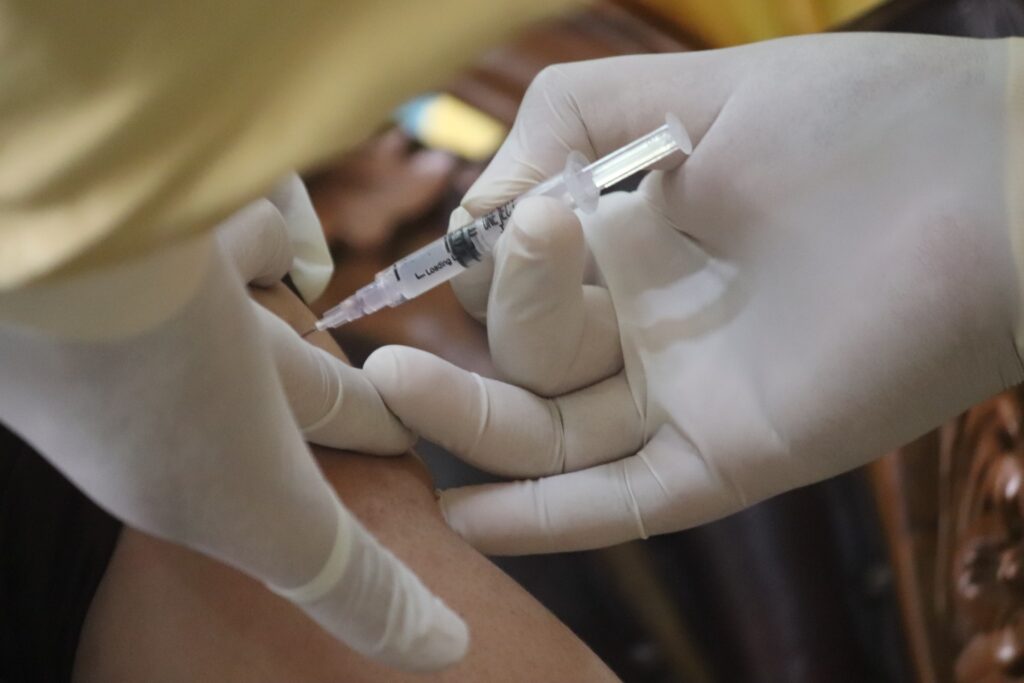More than 21.500 suspected adverse reactions to vaccines against Covid-19 were registered in Portugal until the end of last year and there were 116 reported cases of death in the elderly, without a cause-effect relationship being demonstrated, according to Infarmed.
According to the latest report by the National Authority for Medicines and Health Products, as of December 31, 21.595 adverse reactions had been reported (one for every 1.000 vaccines administered), 6.939 of which were considered serious, but Infarmed insists that “the reactions adverse effects on Covid-19 vaccines are infrequent, with around one case per thousand inoculations”, a figure that has remained stable over time.
Most of the adverse reactions (10.993) refer to the Pfizer/BioNtech (Comirnaty) vaccine, followed by AstraZeneca (Vaxzevria), with 6.166, Moderna (Spikevax), with 2.440, and Janssen, with 1.878 cases.
Infarmed emphasizes, however, that these data "do not allow the comparison of safety profiles between vaccines", since they were used in different population subgroups (age, gender, health profile, among others) and "in epidemiological periods and contexts distinct”.
Out of a total of 19.648.216 doses administered, Infarmed recorded 21.595 cases of adverse reactions, of which 6.939 were serious (32%), including 116 cases of death among people aged 77 years on average.
"The cases of death occurred in a group of individuals with a median age of 77 years and do not necessarily imply the existence of a causal relationship between each death and the vaccine administered, also taking place within the normal patterns of morbidity and mortality of the Portuguese population" , writes Infarmed.
The report also adds that, of the cases of adverse reactions classified as serious, "about 85% relate to situations of temporary incapacity (including absenteeism from work)".
Of serious adverse reactions, the report says 4.172 (19,3%) were classified as clinically important, 1.698 (7,9%) caused some disability, 742 (3,4%) required hospitalization, 208 (1%) represented life-threatening and 116 (0,5%) resulted in death.
By age group, the one with the most cases of serious adverse effects recorded was that of 25 to 49 years old (3.217 cases), which also had the highest number of administered vaccines (5.981.217).
In the report, the Medicines Authority gives an account of six cases reported in children aged 05 to 11 years, which include "shivering, pain at the vaccination site, general malaise, pyrexia, petechiae and one case of myocarditis, the latter being it occurred in a 10-year-old child with a clinical course of cure”.
For the age group 12-17 years old, 97 serious cases were recorded, mostly referring to situations "already described in the vaccine information", such as cases of syncope or pre-syncope allergic-type reactions, which depend on the individual profile of the vaccinated.
"These are cases that motivated observation and/or clinical treatment, but all had a positive evolution and no sequelae", says Infarmed, stressing that 13 of these cases were reported as myo/pericarditis, "possibly associated with the mRNA vaccine being used in the program of current vaccination”, which were “of moderate severity” and presented “favorable evolution after adequate treatment”.
"It should be noted that myocarditis and pericarditis are inflammatory diseases of varied etiology, normally associated, especially in this age group, with viral infections, which makes it difficult to establish a causal relationship with the vaccine", insists Infarmed.
With regard to gender distribution, the Infarmed report reveals a greater preponderance of reporting of adverse reactions by females, the normal reporting trend for any other drug.
"It is thought that this may be due to greater attention by women to their health, as well as their greater interest in themes in the area of health and well-being", says the medicine's authority.
The 10 most reported reactions refer to cases of pyrexia/fever (4.874), headache/headache (4.810), myalgia (muscle pain, 4.463), pain at the injection site (4.011), fatigue (2.419), chills (2.062), nausea (1.770) and generalized pain (1.538).
Cases of arthralgia/joint pain (1.502), dizziness (1.258), malaise (1.236), pain in the extremities (1.224), lymphadenopathy/enlarged lymph nodes (971), asthenia/organ weakness ( 921) and vomiting (908).
"In most cases, the discomfort caused by these reactions resolves in a few hours or days, without the need for medical intervention, and without sequelae", says the report, which adds that "a small number of notifications of cases identified as related to booster dose vaccination” and the most reported were myalgia/muscle pain (38 cases), pyrexia/fever (29), headache/headache (28), chills (24) and arthralgia/pain articulate (19).



















Comments